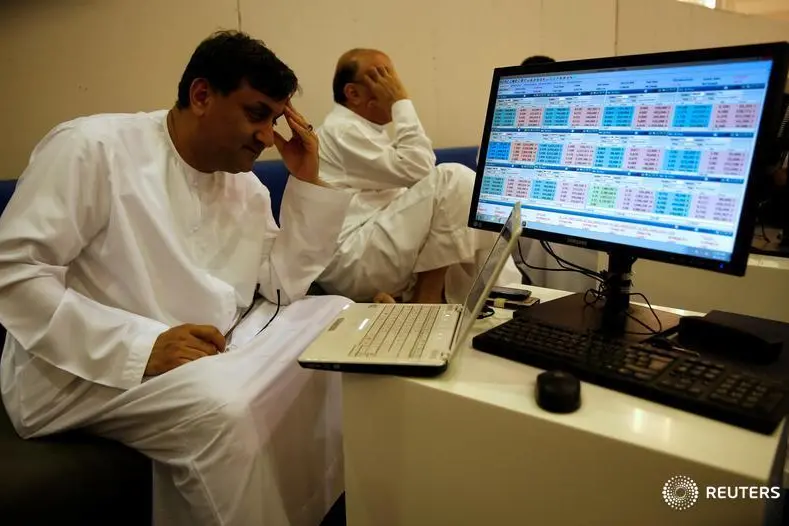PHOTO
The GCC financial markets gained for the second consecutive month during January, according to a report by Kamco Invest.
The MSCI GCC index gained 7.4 percent during January. Saudi Arabia recorded the biggest monthly gain at 8.8 percent followed by Qatar and Kuwait with gains of 7.5 percent and 4.4 percent, respectively.
The gain in crude oil prices also supported markets in the region, although regional geopolitical issues kept investors cautious, said Kamco.
In terms of sector performance, the GCC markets also remained largely positive with only one index—Food & Drugs Retailing index—showing a marginal decline. Banks led with a gain of 8.5 percent mainly led by expectations for a solid earnings season. Early earnings reports for the sector showed falling impairments and higher profits during Q4-2021.
UAE
Abu Dhabi’s FTSE ADX index was the fourth best performing market in the GCC during January with a 2.5 percent gain.
The exchange added indices such as the Health Care and Basic Materials indices to the mix of sectoral indices while removing some others such as the Services index.
The Telecom index showed the biggest monthly gain among the new indices to reach 8112.2 points. The Financial (including Banks) index followed registering the second biggest gain of 3.6 percent.
Trading activity declined on the exchange compared to December 2021. Total volume of shares traded fell to 4.2 billion shares in January compared to 7.2 billion shares in the previous month.
Dubai Financial Market (DFM) General Index started the year weakly witnessing gains of only 0.2 percent y-o-y during January after ending 2021 on a high 28.2 percent year-to-date growth. The benchmark closed at 3,203.08 points.
In terms of sector performance, four out of nine sectoral indices fell during January, including major sectors such as Telecoms, Insurance and Real Estate indices. The Banking Sector index rose 0.5 percent y-o-y to reach 2876.9 driven mainly by Emirate Investment Bank’s 31 percent monthly jump in share prices.
Trading activity on the exchange fell compared to previous month. Total volume of shares traded fell 28 percent to reach 3.4 billion shares in January.
Saudi Arabia
The Tadawul TASI index rose 8.8 percent, recording the best monthly performance in the GCC. It closed the month at 12,271.8 points, the highest level in more than 15 years since July-2006. The gains were supported mainly by positive business sentiments and rising oil prices.
The sector performance was positive across the board.
However, trading activity saw a month-on-month decline. Monthly volume of shares traded fell 8.5 percent to reach 3.7 billion shares.
Kuwait
Kuwait’s equity market saw a positive January with gains across the four benchmark indices.
The Premier Market index showed 4.9 percent return for the month breaching the 8,000 mark to close at 8,012.9 points. The Main 50 Index and the Main Market indices registered gains of 3.7 percent and 2.8 percent, respectively. The net impact was a gain of 4.4 percent for the All-Share Market Index.
Three indices recorded marginal declines during the month as against gains for the remaining nine sectors.
Qatar
The Qatar Stock Exchange witnessed the second-best monthly returns in the GCC during January with its benchmark index gaining 7.5 percent during the month.
The QE20 index closed the month at 12,498.2 points and has maintained a rising trend since the start of this year and surpassed the 12,400 level, buoyed by expectations of positive corporate earnings.
The sector performance chart also reflected the solid gains in the aggregate benchmark with all the sectors, barring Insurance index, showing gains.
Trading activity rose compared with December, with traded volume climbing 45 percent to 3.5 billion shares.
Bahrain
The Bahrain Bourse gained, albeit marginally, for the second consecutive month in January. Bahrain All Share Index rose 0.7 percent to 1,809.8 points.
Sectoral performance was skewed towards decliners with one gainer and six decliners. Only the Materials index registered a gain during the month at 9.4 percent.
Trading activity on the exchange was mixed as value traded rose but volumes fell, indicating higher trades in large cap stocks. Total volume of shares traded fell by 11.8 percent to reach 40 million shares in January.
Oman
The volatility in monthly performance for the Muscat stock market continued during January as the main index declined after seeing gains during December.
The MSM 30 Index fell 0.3 percent to 4,116 points after the three sectoral indices declined during the month. The Industrial index fell the most, 4.6 percent
Trading activity improved compared to the previous month. Total volume of shares traded during the month rose 47.6 percent to 339.6 million shares.
(Reporting by Brinda Darasha; editing by Seban Scaria)
Disclaimer: This article is provided for informational purposes only. The content does not provide tax, legal or investment advice or opinion regarding the suitability, value or profitability of any particular security, portfolio or investment strategy. Read our full disclaimer policy here.
© ZAWYA 2022





















